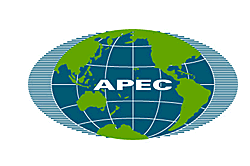

![]()


![]()
Efficiency and transportation planning The concept of "efficiency" emerged as a central theme in the APEC Transportation Youth Forum. The youth were concerned that current transportation planning does not occur as efficiently as it could - resulting in negative economic, social, and environmental consequences. Youth identified a number of areas where the efficiency of transportation planning could be improved. Youth were concerned that current practices favour the building of costly new transportation infrastructure; the youth recommended that planners focus more on using existing transportation infrastructure more efficiently and effectively in order to avoid the costs of new development. For example, instead of building a costly new highway, more use of public transit or commuter lanes may be more cost effective.
As well, youth delegates discussed how a focus on short-term goals during planning has often led to inefficient use of transportation infrastructure and higher environmental costs. For example, planners may spend $5 million immediately to patch up a bridge. This would delay the cost of having to build a new bridge. However, the repair costs to the old bridge over the next 20 years may cost more than building a new bridge immediately would have cost. The youth recommended that when planning for transportation, efforts should be made to achieve a balance between short and long-term goals.
The role that technology can play in increasing the efficiency of transportation infrastructure, if used in appropriate ways, was also recognized. Finally, increased communication - between and within APEC economies - was recommended as a way to make transportation planning and development more efficient.
© 1997 - TG Magazine / The Students Commission
© 1997 le magazine TG / la Commission des Ètudiants